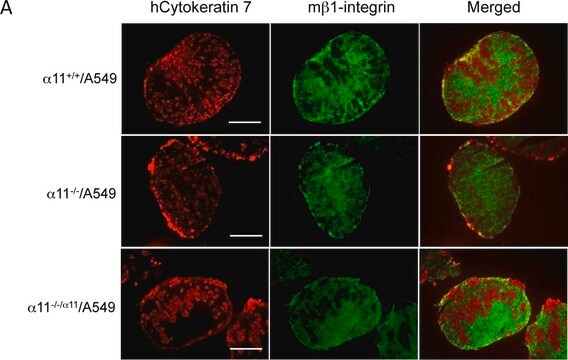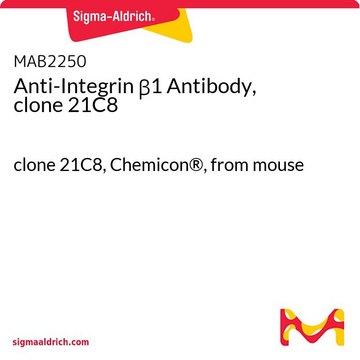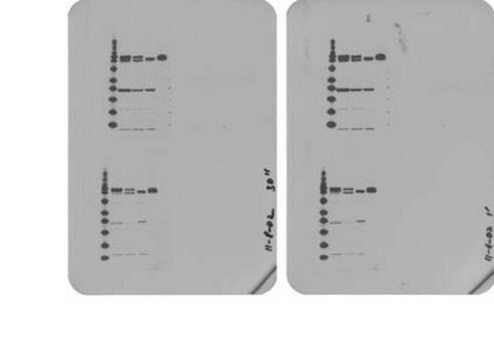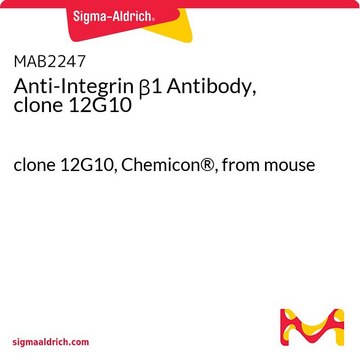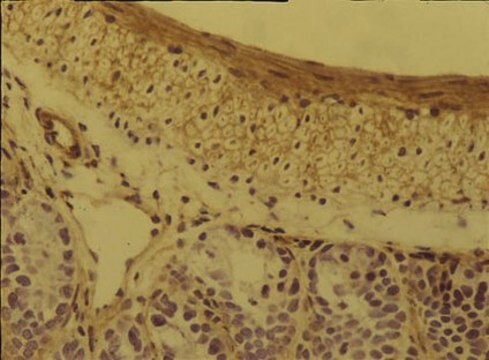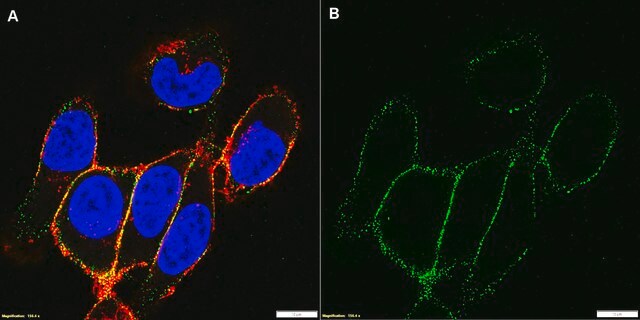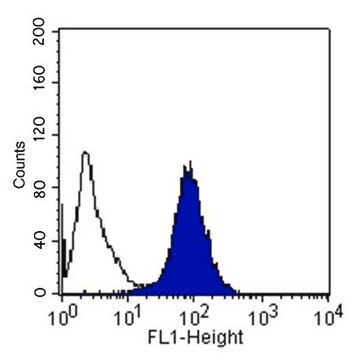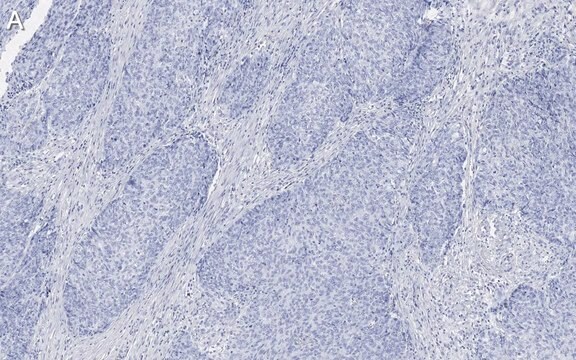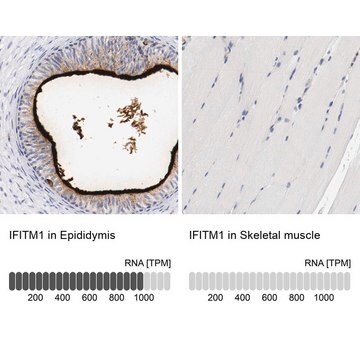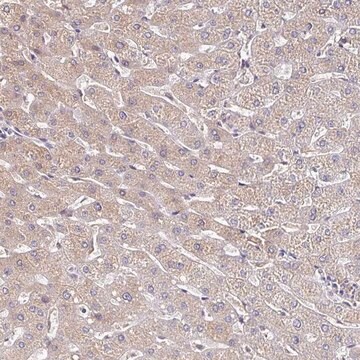AB1952P
Anti-Integrin β1 Antibody, cytosolic
Chemicon®, from rabbit
Sinónimos:
CD29
About This Item
Productos recomendados
origen biológico
rabbit
Nivel de calidad
forma del anticuerpo
purified immunoglobulin
tipo de anticuerpo
primary antibodies
clon
polyclonal
reactividad de especies
human, rat, pig, mouse
fabricante / nombre comercial
Chemicon®
técnicas
immunoprecipitation (IP): suitable
western blot: suitable
Nº de acceso NCBI
Nº de acceso UniProt
Condiciones de envío
wet ice
modificación del objetivo postraduccional
unmodified
Información sobre el gen
human ... ITGB1(3688)
Especificidad
Inmunógeno
Aplicación
Immunoprecipitation
Optimal working dilutions must be determined by the end user.
Descripción de destino
Forma física
Nota de análisis
U251 cell line Skin (Basement Membrane)
Información legal
¿No encuentra el producto adecuado?
Pruebe nuestro Herramienta de selección de productos.
Opcional
Código de clase de almacenamiento
10 - Combustible liquids
Clase de riesgo para el agua (WGK)
WGK 2
Punto de inflamabilidad (°F)
Not applicable
Punto de inflamabilidad (°C)
Not applicable
Certificados de análisis (COA)
Busque Certificados de análisis (COA) introduciendo el número de lote del producto. Los números de lote se encuentran en la etiqueta del producto después de las palabras «Lot» o «Batch»
¿Ya tiene este producto?
Encuentre la documentación para los productos que ha comprado recientemente en la Biblioteca de documentos.
Nuestro equipo de científicos tiene experiencia en todas las áreas de investigación: Ciencias de la vida, Ciencia de los materiales, Síntesis química, Cromatografía, Analítica y muchas otras.
Póngase en contacto con el Servicio técnico